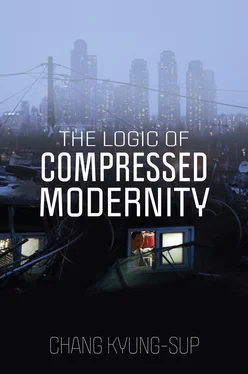56 49
57 50
58 51
59 53
60 54
61 55
62 56
63 57
64 58
65 59
66 60
67 61
68 62
69 63
70 64
71 65
72 66
73 67
74 68
75 69
76 70
77 71
78 72
79 73
80 74
81 75
82 76
83 77
84 78
85 79
86 80
87 81
88 82
89 83
90 84
91 85
92 86
93 87
94 88
95 89
96 90
97 91
98 92
99 93
100 94
101 95
102 96
103 97
104 98
105 99
106 100
107 101
108 102
109 103
110 104
111 105
112 106
113 107
114 108
115 109
116 110
117 111
118 112
119 113
120 114
121 115
122 116
123 117
124 118
125 119
126 120
127 121
128 122
129 123
130 124
131 125
132 126
133 127
134 128
135 129
136 130
137 131
138 132
139 133
140 134
141 135
142 136
143 137
144 138
145 139
146 140
147 141
148 142
149 143
150 144
151 145
152 146
153 147
154 148
155 149
156 150
157 151
158 152
159 153
160 154
161 155
162 156
163 157
164 158
165 159
166 160
167 161
168 162
169 163
170 164
171 165
172 166
173 167
174 168
175 169
176 170
177 171
178 172
179 173
180 175
181 177
182 178
183 179
184 180
185 181
186 182
187 183
188 184
189 209
190 210
191 211
192 212
193 213
194 214
195 215
196 216
197 217
198 218
199 219
200 220
201 221
202 222
203 223
204 224
205 225
206 226
207 227
208 228
209 229
210 230
211 231
212 232
213 233
214 234
215 235
216 236
217 237
218 238
219 239
220 240
221 241
The Logic of Compressed Modernity
Chang Kyung-Sup
polity
Copyright © Chang Kyung-Sup 2022
The right of Chang Kyung-Sup to be identified as Author of this Work has been asserted in accordance with the UK Copyright, Designs and Patents Act 1988.
First published in 2022 by Polity Press
Polity Press
65 Bridge Street
Cambridge CB2 1UR, UK
Polity Press
101 Station Landing
Suite 300
Medford, MA 02155, USA
All rights reserved. Except for the quotation of short passages for the purpose of criticism and review, no part of this publication may be reproduced, stored in a retrieval system or transmitted, in any form or by any means, electronic, mechanical, photocopying, recording or otherwise, without the prior permission of the publisher.
ISBN-13: 978-1-5095-5290-0
A catalogue record for this book is available from the British Library.
Library of Congress Control Number: 2021946662
The publisher has used its best endeavors to ensure that the URLs for external websites referred to in this book are correct and active at the time of going to press. However, the publisher has no responsibility for the websites and can make no guarantee that a site will remain live or that the content is or will remain appropriate.
Every effort has been made to trace all copyright holders, but if any have been overlooked the publisher will be pleased to include any necessary credits in any subsequent reprint or edition.
For further information on Polity, visit our website: politybooks.com
The dramatic nature of South Korea’s societal transformations on all fronts – beginning with the political departure in 1948 as a highly advanced democracy in form and spanning to the “miracle-paced” capitalist industrialization and economic growth since the mid 1960s and the global cultural ascendance of Korean popular culture (dubbed “the Korean wave”) in the twenty first century – has been substantially derived from the radically extensive and unprecedentedly condensed process of simulating, materializing, and utilizing the modern (reads Western or American) systems of political, economic, and sociocultural life. In finding and justifying the rationale of such compressed Westernization-cum-modernization, professional social sciences, as mechanically partitioned from humanities, have often taken the place of public sociopolitical debates and intellectual philosophical deliberations. However, the overwhelming materiality of “successful” modernization and development – usually measured in terms of the degree of temporal and substantive compression – has sided with social scientists in social influence and technocratic utilities, who thus keep intensifying their self-partitioned practice in research, education, and public advice.
Three decades of work as a social scientist at a South Korean university have induced me to think that local social sciences are no less quite a unique social phenomenon to be explained themselves than an academic task of explaining the supposed real-world social phenomena. This thought is inseparable from a judgment that the extremely compressed nature of South Korea’s modernization and development and its actual conditions, processes, and risks constitute a highly essential scientific subject. Another decisive judgment is that compression in modernization and development has been as much global historical necessitation (or sometimes coercion) as purposive national achievement. In still another related judgment, compressed modernization and development, while South Korea is indeed an exemplary case, have been universal across the postcolonial world whether in reality or aspiration. Given these interrelated thoughts and judgments, reflecting on locally practiced social sciences, including my own scholarship, becomes a very interesting and productive experience, even leading to a wide array of crucial clues in understanding the (real?) social world as well. Every day at work has thus been an interestingly productive experience, and part of its outcome is the current book.
Apparently, this self-reflective sociology of knowledge has long been experienced by numerous scholars around me. In particular, many of my Korean teachers in sociology – including Kim Il-Chul, Kim Kyong-Dong, Han Wan-Sang, Kim Jin-Kyun, Shin Yong-Ha, Kwon Tai-Hwan, Han Sang-Jin, Lim Hyun-Chin, and Hong Doo-Seung – have endeavored to offer earnest realizations about the contested utilities of locally practiced sociology and its desirable innovations in coming to effective grips with South Korea’s historico-social realities. Such valuable realizations, along with their substantive contributions about various social phenomena, have crucially benefitted me in developing many key questions on compressed modernity discussed in this book. In particular, my thesis on internal multiple modernities (presented in Chapter 4) is decisively owing to abundant rich observations and intuitive thoughts available in their scholarship.
In analyzing compressed modernity since the 1990s, I have been engaged in quite close exchanges and collaborations with many of the world’s leading authorities in studying comparative modernities – in particular, Ulrich Beck, Bryan S. Turner, and Göran Therborn. The outcomes of such relationships are fully incorporated in this book as follows: Chapter 3(“Compressed Modernity in the Universalist Perspective”) drawing on the concurrence between Beck and me on “reflexive cosmopolitization”; Chapter 4(“Internal Multiple Modernities”) sharing Therborn’s global structuralist perspective on modernities; and Chapter 5(“Transformative Contributory Rights”) extending Turner’s conception of citizenship to South Korea’s transformative politics. Besides these chapters, a section in Chapter 1(“Compressed Modernity in Critical Modernity Debates”) discusses details of these scholars’ arguments and their systematic implications for compressed modernity.
Читать дальше












